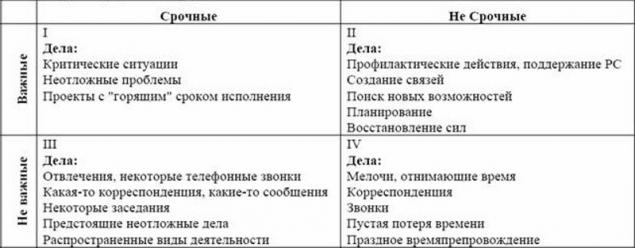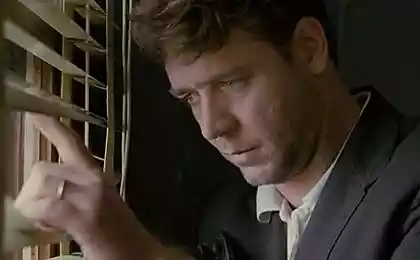120
What book is worth reading in autumn
The world is evolving and moving forward. And if a person does not keep up with this movement, he will quickly find himself in secondary roles, where he will only be forced to observe more successful, effective and successful people. Therefore, in order not to lag behind in your business, you need to develop, invest resources in personal effectiveness.
Unsurprisingly, among the most sought-after self-improvement literature is Stephen Covey’s “Seven Habits of Highly Effective People,” whose title speaks for itself. And yet, not everyone who opens the book can finish the book.
So today's editorial office. "Site" I will try to convey the main ideas of this useful book. And if the topic seems close enough to you, you will always be able to read this book. Maybe more than once.

“For a thousand people who tear the leaves of the tree of evil, there is only one who cuts it at the root.” – Henry David Thoreau
Stephen Covey also uses this quote to explain that when you try to change your behavior, you just rip off the leaves. Change can only be achieved by changing your habits.

If a person is used to taking a shower twice a day, he will be considered clean. If a person is used to praying before each meal, they will be considered religious. Habits are the essence of man. Because the essence of an effective person They also have skills that have become habits. Stephen Covey identified 7 majors.
Stephen Covey believes that right investment It is an investment in oneself, and therefore one should regularly sharpen the saw, develop in all the most important directions. It's hard to argue with him.
Have you mastered this wonderful book yet?
Unsurprisingly, among the most sought-after self-improvement literature is Stephen Covey’s “Seven Habits of Highly Effective People,” whose title speaks for itself. And yet, not everyone who opens the book can finish the book.
So today's editorial office. "Site" I will try to convey the main ideas of this useful book. And if the topic seems close enough to you, you will always be able to read this book. Maybe more than once.

“For a thousand people who tear the leaves of the tree of evil, there is only one who cuts it at the root.” – Henry David Thoreau
Stephen Covey also uses this quote to explain that when you try to change your behavior, you just rip off the leaves. Change can only be achieved by changing your habits.

If a person is used to taking a shower twice a day, he will be considered clean. If a person is used to praying before each meal, they will be considered religious. Habits are the essence of man. Because the essence of an effective person They also have skills that have become habits. Stephen Covey identified 7 majors.
- Proactivity. The principle of personal vision.
The reactive person gives up the reins of control of his own life, he is controlled by circumstances or other people. It is common for him to begin the phrase with the words “I was forced to...” Proactive people manage their own circumstances. He formulates thoughts as follows: “I choose...” A proactive person not only takes responsibility for his or her life, but also tries to expand his or her circle of influence by focusing on what he or she can change. He makes commitments and fulfills them. Moreover, his approach to mistakes is also proactive – quick admission of oversight, correction, learning a lesson.
- Start with the ultimate goal. The principle of personal leadership.
This skill is needed in many different areas of our lives. Presenting the ultimate goal at the very beginning of the journey is not only to acquire a constant source of inspiration, but also to get clear criteria by which to evaluate any intermediate results. Understanding what you really want allows you to see whether you are moving forward or standing still. It doesn’t matter how fast you climb a ladder if it’s against the wrong wall.
It’s like a house that you start building in reality, but you’ve already built in your own mind. You do not just fantasize, but think through every little thing, ranging from the number of rooms to the pots on the windowsill.
This also applies to the upbringing of a child. For example, if in the end we want our children to remember us as loving parents, it is unlikely that shouting and bullying will become our assistant in the educational process.
- What to do first. The principle of personal management.
This skill is impossible without the first two. After all, only by being proactive and seeing the ultimate goal, you can adequately prioritize between different tasks. The author of the book proposes to divide all cases according to urgency and importance. And most of all, it is important, but not urgent, things that require us to be active. It is necessary to coordinate goals, consider other areas of life besides work, take into account the human factor, be flexible.
- Think in a Win/Win way. The principle of interpersonal leadership.
Only by being successful with yourself can you be successful with others. The author proposes to present our relationship with another person in the form of an emotional bank account, which increases due to the right actions on our part and decreases due to the wrong ones. You can replenish such an account in the following ways: understand another person, be attentive to small things, show care, fulfill your obligations, clarify expectations (so that the person knows what behavior to expect). When withdrawing a certain amount from the account, you should admit that you are wrong and try to replenish the account again.
The Win/Win human interaction paradigm suggests Treating Relationships as CooperationNot rivalry. It is necessary to be able to see the problem through the eyes of the other person in order to understand their key concerns and offer an option that will be beneficial for both parties.
- Understand yourself and then be understood. The principle of empathic communication.
Communication skills are very important for our lives. To influence a person, whether it is a child, wife, noisy neighbor or subordinate, you should first understand the opponent, otherwise it will be perceived as manipulation. Empathic communication The goal is to understand the interlocutor. A full judgment is impossible without understanding, and if we judge at once, we will never have an understanding. Therefore, one must first understand the person and only then make an effort to make him understand us, using clear phrases and answering clarifying questions.
- Achieve synergies. The principle of creative cooperation.
Synergy is an activity of the highest order. Just as two logs hold more weight than each individually, so people working in a team do more good than alone. Through synergy, strengths are improved and weaknesses are compensated. Synergy is impossible without five skills. After all, it is after the emergence of empathy that the cohesion of a group of people occurs, which allows them to cooperate fruitfully in the future.
You can imagine a family conflict, when the husband wants to go fishing, and the wife persuades to visit her mother. Spouses can argue and argue for a long time without finding a compromise. And they can achieve synergy, come together and solve the problem by thinking through different options.
For example, a husband can go fishing now, and then take a weekend at work and go to his mother-in-law. Or he can fish near the place where his wife's mother lives. There are many options, you just need to be ready to consider them.
- Cut the saw. The principle of balanced self-renewal.
Imagine a man sawing a tree with a blunted saw. He is terribly tired, but continues to carry almost useless saw, without getting results. But on the offer to sharpen the saw, he only shrugs off: “I have no time!” But don't we look so stupid in life? The latter skill allows a person to maintain and develop his or her most important resource: himself or herself. It is imperative to update the four dimensions of one’s own nature: physical (proper nutrition, sports, rest), spiritual (revision of values, thinking about life), intellectual (read, imagine, plan), social and emotional (friend, seek recognition, love).
Stephen Covey believes that right investment It is an investment in oneself, and therefore one should regularly sharpen the saw, develop in all the most important directions. It's hard to argue with him.
Have you mastered this wonderful book yet?
































